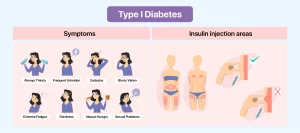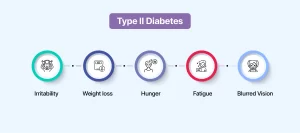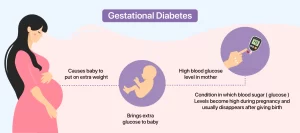What comes to your mind when you hear the word ‘Diabetes’?
I always remember my family members who gave up their lives to this disease and those suffering from it. The numbers are increasing as time passes, and the statistics related to diabetes are NOT SO SWEET. Prevalence has been rising more rapidly in developing countries than in developed ones. 1 in 11 Indians have diabetes, which accounts for 77 million cases recorded as per 2020 data. Sadly, the numbers are likely to get doubled by 2030.
Mechanism of diabetes?
When our food gets digested into simpler forms, glucose (sugar) is produced. Glucose acts as a significant source of energy to perform bodily functions. The excess amount of glucose molecules is stored in the pancreas with the help of an enzyme called insulin. If insulin is insufficient, glucose can not be stored in the pancreas and remain in the bloodstream. The surplus amount gets deposited in different areas of the body. For example: When excess glucose is present in the blood, it is likely to cause kidney failure. Glucose deposited in the retina’s blood capillaries leads to early cataracts, and in more severe cases, it causes blindness.
Common symptoms of diabetes
- Frequent urination
- Extreme hunger
- Blurry vision
- Weight gain or weight loss
- Tingling sensation and numbness in hands/ feets
Types of Diabetes
- Type I diabetes: Also called juvenile diabetes, is a condition caused when the pancreas makes less or no insulin. The exact reason behind this mechanism is unknown. Studies have shown that Type- I diabetes passes through generations. With time the condition might get adverse, and the patient depends on artificial insulin for survival.

- Type II diabetes: is caused when the body cannot use existing insulin to store glucose. Although the body produces a surplus amount of insulin, it remains unused. Sadly, Type II diabetes cases are on a hike because of the sedentary lifestyle we follow, ultimately leading to insulin resistance. But the good news is Type II diabetes can be controlled by incorporating a healthy regime for the body.

- Gestational diabetes: During pregnancy, the placenta secretes many different types of hormones that make the body resistant to insulin leading to Gestational diabetes. This condition usually gets reversed after pregnancy but most likely harms the baby’s health. So, taking utmost precautions during pregnancy is essential and getting tested by a good care enter.

There are many myths related to diabetes. Let us now check if they are myths or facts.
- Diabetes is caused only by eating sugar: No diabetes is not caused by only eating excessive sugar but also by eating a high carbohydrate-rich diet. And sugar of any sort is, ofcourse, a carbohydrate (even sugar-free).
- Diabetes does not possess any severe complications: That is Not true. If ignored, diabetes may have severe complications like cardiovascular disease, eye damage, and kidney damage.
- Diabetes is caused only to obese people: No, diabetes can happen regardless of weight.
- Conditions like PCOD, blood sugar, and heart complications cause diabetes: True, as sedentary lifestyles and hormonal changes inflict many health complications. The pattern suggest that if an individual does not adapt an healthy lifestyle diabetes is more likely to occur.
YODA suggests
Diabetes is a byproduct of an inactive lifestyle. Needless to say, it’s the root cause of many health complications. But what can be done to reverse this condition?
The truth is Type I diabetes condition can’t be reversed, and Type II is tough to control. But, it is mandatory to follow the below-given steps to thrive through DIABETES to lead a normal lifestyle.
- Adopt a healthy lifestyle
- Get proper diagnosis
- Medical inputs from a good practitioner is essential
Prediabetes is a condition when the blood sugar level is higher but not to a level that it could be detected. 80% of prediabeteic cases are undetected because of lack of awareness. Yoda has a comprehensive panel for diagnosing prediabetes and diabetic conditions. Also, our genome analysis can reveal answer to the most important question that; If you already have diabetes, what is the chance that your child will adapt the disease?






















